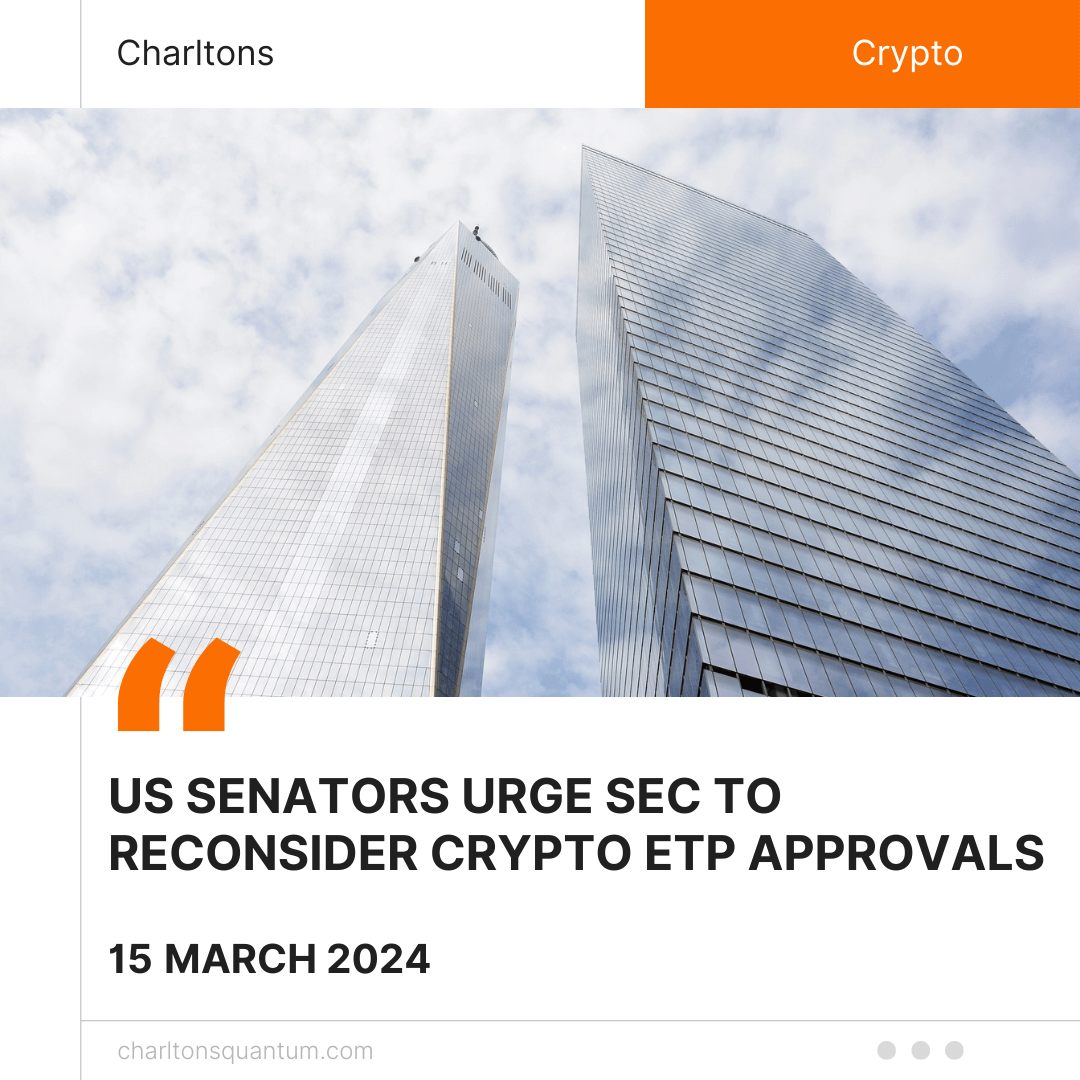
US Senators Jack Reed and Laphonza Butler have called on Securities and Exchange Commission (SEC) Chairman Gary Gensler to halt the approval of further crypto exchange-traded products (ETPs) beyond Bitcoin. Their letter to Gensler emphasizes concerns over investor protections in the volatile crypto market, citing misleading communications from brokers and potential confusion over naming conventions.
The senators’ letter reflects apprehensions about the accessibility of volatile cryptocurrency investments to the general public through brokerage and retirement accounts. They highlight a review by the Financial Industry Regulatory Authority (FINRA), revealing that 70% of broker communications with retail investors regarding cryptocurrency breached fair disclosure rules, raising concerns about investor knowledge and protection. The letter particularly addresses the labeling of Bitcoin ETPs as “exchange-traded funds” (ETFs), expressing worries that investors may be misled into believing these products have the same protections as traditional ETFs governed by the Investment Company Act of 1940.
The senators outline three actions for the SEC: examining brokers’ communications to ensure accurate investor information, scrutinizing recommendations to confirm alignment with client best interests, and demanding clearer naming conventions to avoid confusion. They also advocate for a cautious approach to approving ETPs for other cryptocurrencies, citing concerns over market integrity and vulnerability to fraudulent schemes.
The senators’ appeal to the SEC is a regulatory scrutiny of the crypto market, particularly regarding investor protection and market integrity. While their concerns about potential risks and misleading communications are valid, the crypto community has responded with skepticism, questioning the motives behind the senators’ demands and highlighting the success of Bitcoin spot products among traditional financial circles. The debate underscores the polarizing nature of regulatory discourse in the crypto space and the need for balanced regulation that fosters innovation while safeguarding investors. As regulatory oversight continues to evolve, collaboration between lawmakers, regulators, and industry stakeholders will be crucial in shaping a regulatory framework that promotes responsible growth and innovation in the cryptocurrency industry.





